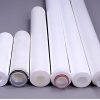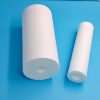Enhancing Productivity with Polyester Conveyor Mesh Fabric
Benefits of Using Polyester Conveyor Mesh Fabric for Increased Productivity
Polyester conveyor mesh fabric is a versatile material that has been gaining popularity in various industries due to its numerous benefits. From food processing to automotive manufacturing, this durable and flexible material has proven to be a valuable asset in enhancing productivity. In this article, we will explore the benefits of using polyester conveyor mesh fabric and how it can help increase efficiency in your operations.
One of the key advantages of polyester conveyor mesh fabric is its high tensile strength. This means that it can withstand heavy loads without stretching or breaking, making it ideal for conveying materials in industrial settings. Whether you are transporting raw materials in a factory or moving finished products for packaging, polyester conveyor mesh fabric can handle the job with ease.
In addition to its strength, polyester conveyor mesh fabric is also resistant to abrasion and corrosion. This means that it can withstand harsh conditions without deteriorating, ensuring a longer lifespan and reducing the need for frequent replacements. By using polyester conveyor mesh fabric, you can save time and money on maintenance and repairs, allowing your operations to run smoothly and efficiently.
Another benefit of polyester conveyor mesh fabric is its flexibility. Unlike rigid materials such as metal or plastic, polyester conveyor mesh fabric can be easily molded and shaped to fit the specific requirements of your application. This flexibility allows for greater customization and adaptability, making it easier to optimize your conveyor system for maximum efficiency.
Furthermore, polyester conveyor mesh fabric is lightweight and easy to install, reducing downtime and labor costs. Its smooth surface also minimizes friction, allowing for smoother and more efficient material flow. By using polyester conveyor mesh fabric, you can streamline your operations and increase productivity without sacrificing quality or reliability.
Moreover, polyester conveyor mesh fabric is easy to clean and maintain, ensuring a hygienic and safe working environment. Its non-porous surface prevents the buildup of dirt and debris, reducing the risk of contamination and ensuring compliance with industry regulations. By using polyester conveyor mesh fabric, you can improve the overall cleanliness of your facility and enhance the quality of your products.
In conclusion, polyester conveyor mesh fabric offers a wide range of benefits for increasing productivity in various industries. Its high tensile strength, resistance to abrasion and corrosion, flexibility, and ease of installation make it an ideal choice for conveyor systems. By using polyester conveyor mesh fabric, you can optimize your operations, reduce maintenance costs, and improve the overall efficiency of your facility. Consider incorporating polyester conveyor mesh fabric into your operations today and experience the difference it can make in enhancing productivity.
Tips for Maintaining and Cleaning Polyester Conveyor Mesh Fabric for Optimal Performance
Polyester conveyor mesh fabric is widely recognized for its durability and versatility in various industrial applications. To ensure optimal performance and longevity of this essential material, proper maintenance and cleaning practices are crucial. Regular upkeep not only enhances the fabric’s efficiency but also contributes to the overall productivity of the operations it supports. One of the primary tips for maintaining polyester conveyor mesh fabric is to establish a routine inspection schedule. By routinely checking for signs of wear, tear, or damage, operators can identify potential issues before they escalate into more significant problems. This proactive approach allows for timely repairs or replacements, minimizing downtime and ensuring that the conveyor system operates smoothly.
In addition to regular inspections, it is essential to implement a systematic cleaning regimen. Polyester conveyor mesh fabric can accumulate dust, debris, and other contaminants over time, which can hinder its performance. Therefore, using a gentle cleaning solution and soft brushes or cloths is recommended to remove any buildup without damaging the fabric. It is advisable to avoid harsh chemicals or abrasive materials, as these can compromise the integrity of the polyester fibers. Instead, opting for mild detergents and warm water can effectively clean the fabric while preserving its quality.
Moreover, the frequency of cleaning should be determined by the specific application and the environment in which the conveyor operates. For instance, in settings where the fabric is exposed to food products, more frequent cleaning may be necessary to comply with health and safety regulations. Conversely, in less demanding environments, a less frequent cleaning schedule may suffice. Regardless of the frequency, ensuring that the fabric is thoroughly dried after cleaning is vital. Moisture left on the fabric can lead to mold and mildew growth, which not only affects the fabric’s performance but can also pose health risks in certain applications.
Another important aspect of maintaining polyester conveyor mesh fabric is to monitor the tension and alignment of the conveyor system. Proper tension ensures that the fabric operates efficiently, reducing the risk of slippage or misalignment. Regularly checking the alignment of the conveyor components can prevent unnecessary wear on the fabric and extend its lifespan. If any misalignment is detected, it should be corrected promptly to avoid further complications.
Furthermore, operators should be mindful of the load capacity of the conveyor system. Overloading the conveyor can lead to excessive strain on the polyester mesh fabric, resulting in premature wear and potential failure. Adhering to the manufacturer’s specifications regarding load limits is essential for maintaining the fabric’s integrity and ensuring safe operation.
In conclusion, maintaining and cleaning polyester conveyor mesh fabric is vital for optimal performance and productivity. By establishing a routine inspection schedule, implementing a systematic cleaning regimen, monitoring tension and alignment, and adhering to load capacity guidelines, operators can significantly enhance the longevity and efficiency of their conveyor systems. These practices not only contribute to the fabric’s durability but also ensure that the overall operational processes remain efficient and effective. Ultimately, investing time and resources into the maintenance of polyester conveyor mesh fabric pays off in the long run, as it leads to improved productivity and reduced operational costs.
Case Studies on How Companies Have Improved Productivity with Polyester Conveyor Mesh Fabric
In recent years, many companies have turned to polyester conveyor mesh fabric as a means to enhance productivity across various industries. This innovative material has proven to be a game-changer, offering numerous advantages that contribute to operational efficiency. One notable case study involves a food processing company that faced challenges with its traditional conveyor systems. The existing belts were prone to wear and tear, leading to frequent downtimes and increased maintenance costs. By switching to polyester conveyor mesh fabric, the company not only reduced the frequency of replacements but also improved the overall speed of their production line. The lightweight nature of the fabric allowed for faster movement of products, which in turn minimized bottlenecks and increased throughput.


Another compelling example can be found in the automotive industry, where a manufacturer sought to streamline its assembly line. The company implemented polyester conveyor mesh fabric in its material handling systems, which facilitated better airflow and cooling for components during the assembly process. This enhancement not only improved the quality of the products but also reduced the time required for assembly. As a result, the manufacturer reported a significant increase in productivity, allowing them to meet growing market demands without compromising on quality.
In the textile industry, a leading apparel manufacturer faced issues with fabric handling that often resulted in damage and waste. By integrating polyester conveyor mesh fabric into their production line, the company was able to create a more efficient system for transporting delicate materials. The mesh fabric’s durability and resistance to fraying ensured that the textiles remained intact throughout the manufacturing process. Consequently, the company experienced a reduction in material waste and an increase in overall output, demonstrating how the right materials can lead to substantial improvements in productivity.

Moreover, a packaging company that specialized in the distribution of consumer goods also benefited from the adoption of polyester conveyor mesh fabric. The company had been struggling with the weight of traditional conveyor belts, which slowed down their operations. By switching to a lighter polyester mesh, they were able to enhance the speed of their packaging lines. This transition not only improved the efficiency of their operations but also allowed for greater flexibility in their production schedules. The ability to quickly adapt to changing demands has become increasingly important in today’s fast-paced market, and this case study exemplifies how polyester conveyor mesh fabric can provide that competitive edge.
Furthermore, in the pharmaceutical sector, a company that was experiencing delays in its production process due to the inefficiencies of its conveyor systems found a solution in polyester conveyor mesh fabric. The material’s non-stick properties facilitated smoother movement of products, reducing the risk of jams and ensuring a continuous flow of operations. This improvement was critical in maintaining compliance with stringent regulatory standards, as it allowed for more consistent production cycles. The company reported not only enhanced productivity but also improved product quality, which is paramount in the pharmaceutical industry.
In conclusion, the case studies of various companies across different sectors illustrate the significant impact that polyester conveyor mesh fabric can have on productivity. By addressing specific challenges related to material handling, these organizations have successfully optimized their operations, reduced waste, and improved overall efficiency. As industries continue to evolve, the adoption of innovative materials like polyester conveyor mesh fabric will likely play a crucial role in driving productivity and maintaining competitiveness in the marketplace.



